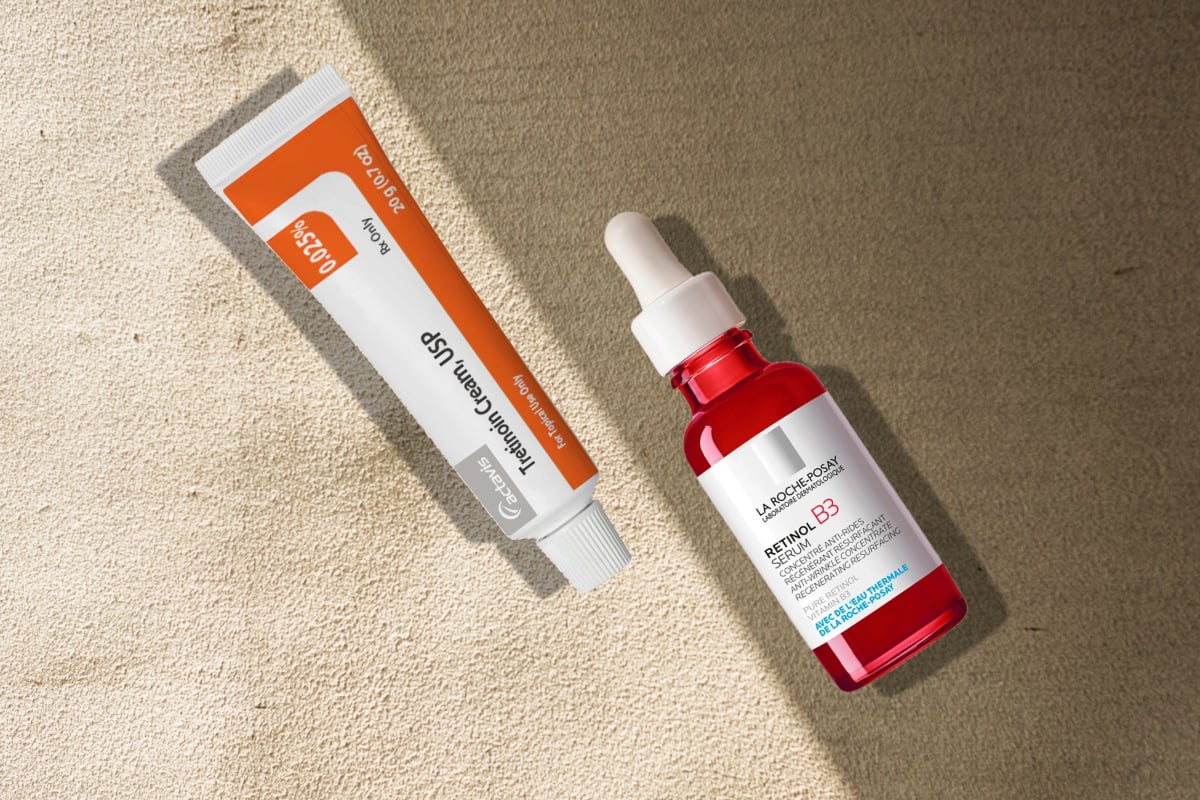This article has been reviewed by Dr. Luisa Fanzani, a Los Angeles-based cosmetic chemist.
- Betaine is a modified amino acid that serves as a humectant, having an essential role in maintaining skin hydration.
- Betaine is often used in skincare as an anti-irritant to calm the skin and support the protective barrier function, its topical application being less irritating than pure water.
- Other betaine skin benefits include boosting the body’s natural antioxidant defense, reducing cellular damage, and brightening the skin by inhibiting melanin production.
- The topical application of betaine is considered safe and suitable for all skin types.
You’re about to meet your new BFF you can always appeal to when needing a hydration boost: betaine. You’d better pay attention because you’ll find this ingredient pretty much in a lot of your skincare (and haircare) products. From serums and moisturizers to face masks and eye treatments, betaine is a staple in the skincare world, and it’s time you learned more about it. Get comfy, as this post delves into all the benefits of betaine for skin, how to use it, and the best betaine-containing products you can add to your beauty ritual to get a bouncy complexion.
What is betaine?
Betaine (also called trimethylglycine) is a small molecule naturally found in sugar beet, wheat bran, spinach, and wheat germ. In skincare, betaine is a powerful modified amino acid that functions as a humectant, having a crucial role in increasing skin hydration and supporting the protective barrier. Betaine is used in skincare not only for its humectant properties but also as an anti-irritant, plus it gives a silky texture to formulations, having a smoothing effect over the product’s viscosity.
OK, it’s about time to get to the good bit, meaning the benefits betaine has for the skin. Dry, flaky skin will be a thing of the past.
Betaine for skin hydration
One of the most notable skin benefits of betaine is increasing hydration since it’s a humectant. Now here’s the gist: betaine acts as a humectant because it is an osmolyte, meaning it’s a water-carrier molecule that helps maintain water balance in skin cells.[1] Betaine does that by attracting water molecules and releasing them to the surrounding areas where they are more needed, such as a part of the skin affected by UV, dryness, or burn. Basically, keratinocytes (cells found in the epidermis) use betaine to maintain their water volume and stay defended against external aggressors. Consequently, betaine helps prevent dehydration at a cellular level.
As a humectant, betaine also supports the skin barrier by ensuring moisture stays locked in. This means betaine is an excellent addition to your skincare products — the more hydrated your skin is, the longer the products stay on and better the absorption.
Betaine for skin soothing
Betaine is also often used in skincare thanks to its skin-calming power. The fact that betaine is gentle, maintains water balance, and protects the skin’s natural barrier makes it a great soothing ingredient. Remember that a healthy skin barrier equals fewer chances of irritations and reduced sensitivity. As such, betaine stands out as a game-changer for people with dehydrated, irritated, or sensitive skin.
Betaine for anti-aging
The benefits of betaine for skin don’t stop at its moisturizing and soothing effects. For instance, betaine could also be used for anti-aging since it consolidates the skin’s protective barrier and retains moisture.
In addition, betaine fights skin aging by expressing indirect antioxidant activities. Buckle up because there is quite a bit to unpack here. Studies have actually found that betaine does not have direct antioxidant effects, meaning it doesn’t scavage free radicals (like vitamin C or resveratrol do). Instead, betaine prevents the contact of free radicals with skin cells and improves the body’s natural free-radicals scavaging power.[2] It seems that betaine forms a protective layer around cells, thereby preventing the contact of free radicals, which in turn reduces tissue damage.
Betaine for skin whitening
Finally, the benefit of betaine for skin whitening is the cherry on top. The skin-brightening effects of betaine are thought to come from its ability to reduce melanin content in skin cells by suppressing tyrosinase activity — the enzyme responsible for pigment production.[4] For reference, during one study, topical betaine reduced melanin levels by up to 21% by suppressing tyrosinase. However, the research was done on mushroom tyrosinase, which is slightly different from human tyrosinase.
Is betaine safe in skincare?
The topical application of betaine is generally non-irritating, high tolerated, and is considered safe for most skin types. Betaine actually smooths and hydrates the skin, not messing with it, so even those with problematic skin can use it without worrying about irritations.
Natural betaine vs. amidopropyl betaines
If you search for betaine on the products label, you’ll mostly find a lot of confusing terms that include betaines, such as cocamidopropyl and almondamidopropyl betaines. All these are called amidopropyl betaines, and what goes before that term refers to the compound from which the final product was derived. For example, cocamidopropyl betaine is made from the fatty acids derived from coconut oil, while almondamidopropyl betaines are made from almond oil. You got the idea.
Now here’s the tricky part. Despite their name, amidopropyl betaines are not derived from betaines, and by no means do they possess the same skin benefits as natural betaines. So amidopropyl betaines are not the same as betaine, having completely different roles in skincare. Betaine functions as a humectant and skin-conditioning agent, while amidopropyl betaines function as surfactants-cleansing, foam boosters, and viscosity-increasing agents.
Betaine salicylate
What about betaine salicylate? Betaine salicylate results from the combination of salicylic acid, an exfoliant with acne-fighting properties, with betaine. The purpose of betaine salicylate is to provide a mild exfoliation that’ll accelerate the skin-renewing process while keeping skin hydrated and smooth. The thumb rule is that betaine salicylate is twice as gentle as salicylic acid. So anyone experiencing dryness or irritations after salicylic acid should count betaine salicylate as an effective alternative.
The best products with betaine
Thanks to its moisturizing, soothing, and skin-protecting properties, betaine found its place in a lot of skincare products. Below are the best betaine products for healthy and glowing skin:
- Murad Rapid Age Spot Correcting Serum – View on Amazon, $78
- Perricone MD Hypoallergenic Calming Moisturizer – View on Perricone MD, $75
- StriVectin Re-Quench Water Cream – View on Amazon, $59
- PCA SKIN ExLinea Pro Peptide Smoothing Serum – View on Amazon, $135
- The Body Shop Mediterranean Soothing Mask – View on The Body Shop, $28
- Farmacy Honey Halo Ultra-Hydrating Moisturizer – View on Sephora, $45
The verdict
There’s enough evidence to say betaine is a skin-loving ingredient, so you can bet on it to keep your skin healthy.
- Yancey, Paul. (2001). Water Stress, Osmolytes and Proteins. Integrative and Comparative Biology. 41. 10.1093/icb/41.4.699.
- Antioxidant Mechanism of Betaine without Free Radical Scavenging Ability. Mengmeng Zhang, Hong Zhang, Huixian Li, Furao Lai, Xiaofeng Li, Yuqian Tang, Tian Min, and Hui Wu, Journal of Agricultural and Food Chemistry 2016 64 (42), 7921-7930, DOI: 10.1021/acs.jafc.6b03592
- Nicander I, Rantanen I, Rozell BL, Söderling E, Ollmar S. The ability of betaine to reduce the irritating effects of detergents assessed visually, histologically and by bioengineering methods. Skin Res Technol. 2003 Feb;9(1):50-8. DOI: 10.1034/j.1600-0846.2003.00367.x. PMID: 12535285.
- Cho BR, Jun HJ, Thach TT, Wu C, Lee SJ. Betaine reduces cellular melanin content via suppression of microphthalmia-associated transcription factor in B16-F1 murine melanocytes. Food Sci Biotechnol. 2017;26(5):1391-1397. Published 2017 Sep 22. doi:10.1007/s10068-017-0171-6




![Does resveratrol in red wine benefit your skin? While sipping on a glass of red wine can be a delightful experience, relying on it for skincare benefits is not the best idea. Sure, red wine contains a smidge of resveratrol, but let's put things into perspective. The concentration of resveratrol in red wine is relatively low. Red wines, specifically Pinot noir from France, typically contain 0.361-1.972 mg of resveratrol per liter.[8] To hit that reference dose of 500mg of resveratrol, you'd need to drink a lot of wine. We're talking about downing anywhere from 100 to 1000 glasses per day. It's a scene straight out of a wine lover's wildest dreams, but definitely not the healthiest approach. Resveratrol Benefits for Skin](https://womensconcepts.com/wp-content/uploads/2022/03/Resveratrol-Benefits-for-Skin.jpg)
